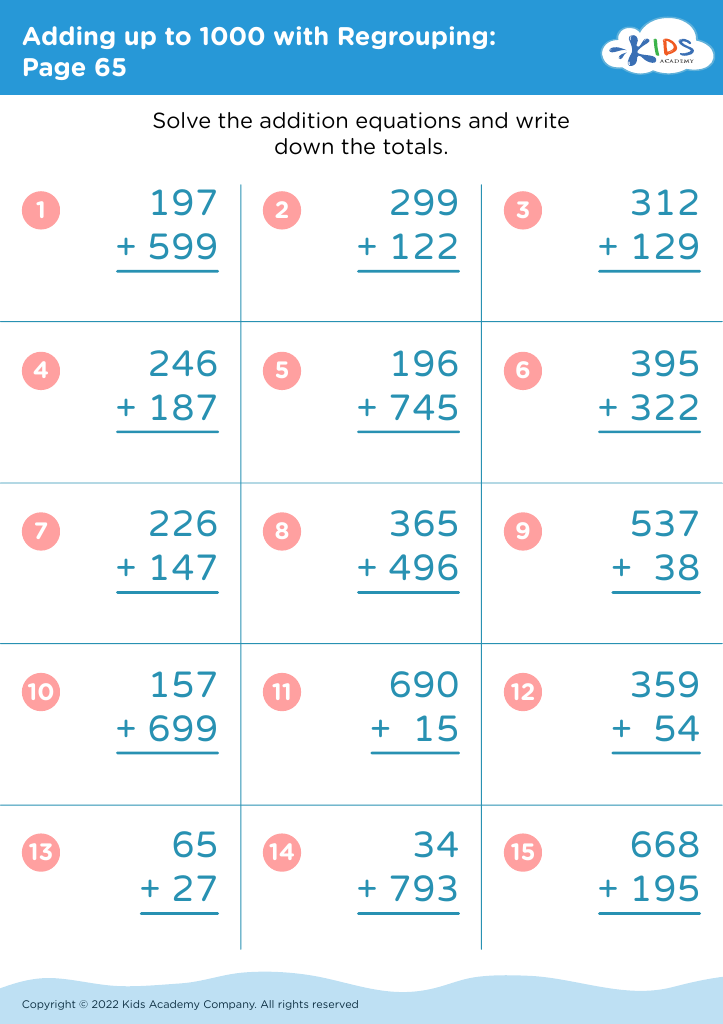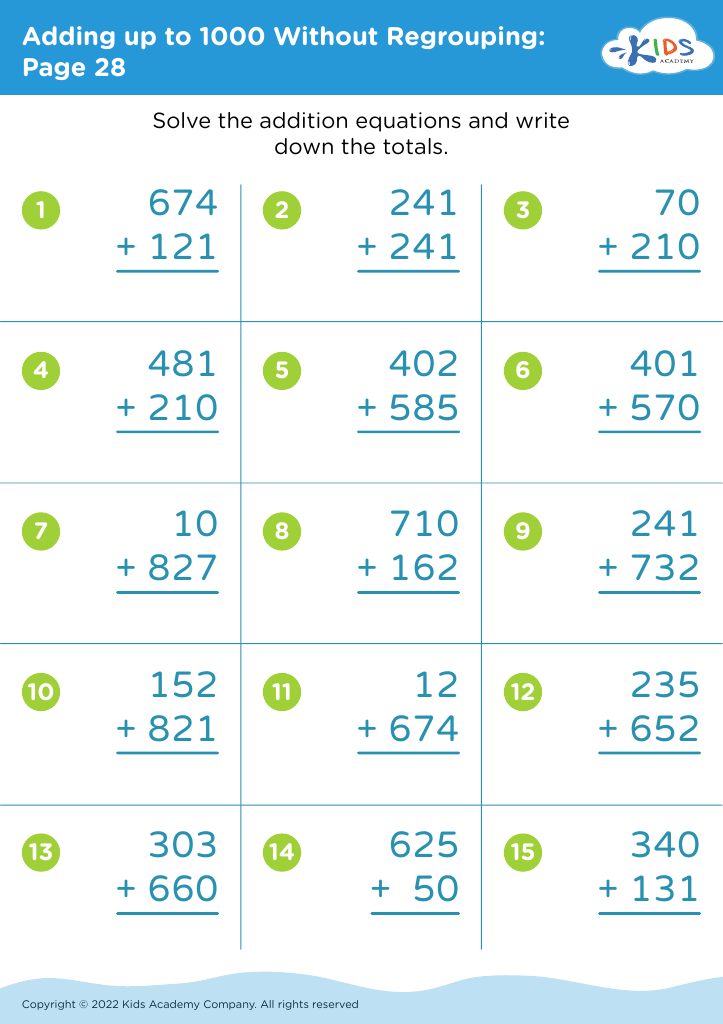Addition of fractions Math Worksheets for Ages 3-7
3 filtered results
-
From - To
Our "Addition of Fractions Math Worksheets for Ages 3-7" are designed to make fraction learning fun and interactive for young minds. Each worksheet introduces basic fraction concepts through engaging activities and colorful illustrations. Perfect for early learners, these printables foster solid foundational math skills, enabling children to grasp addition of fractions effortlessly. Created by educational experts, our worksheets align with age-appropriate learning standards to ensure a seamless and enjoyable learning experience. Boost your child's confidence and proficiency in math with these wonderful resources, hinting at a lifetime love for numbers. Explore and download now!
When young learners, ages 3-7, begin grasping mathematical concepts such as the addition of fractions, it lays a crucial foundation for their overall cognitive development and future academic success. For parents and teachers, fostering an understanding of these concepts is essential.
Firstly, introducing fractions helps children develop a strong sense of number relationships and proportional thinking, critical skills in both everyday decision-making and more advanced areas of mathematics. Without an early start, students might find themselves struggling with more complex math concepts later on, leading to frustration and aversion to the subject.
Secondly, learning fractions enhances a child's ability to solve problems creatively and think critically. Fractions combine both numerical and geometric perspectives, allowing kids to visualize and understand parts of a whole in varying contexts. These problem-solving skills are applicable beyond mathematics, aiding in overall intellectual growth.
Moreover, this age period is ideal for introducing these concepts because young children are naturally curious and more open to learning new and challenging ideas. By teaching fractions in a fun and engaging manner, such as through interactive games, real-life examples, and visual aids, parents and teachers can foster a positive attitude towards math, nurturing a lifelong appreciation and understanding of the subject.
Thus, caring about early fraction education is an investment in a child’s comprehensive intellectual development and lasting success in both academic and real-world problem-solving scenarios.



















